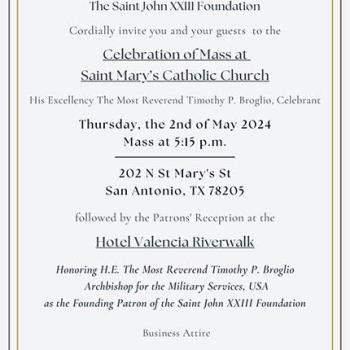The deaths of those two people closest to us also focus our own attention on those dynamics. If we can be charitably honest about it, the way their lives end can give us wisdom for the life that we have left to us.
Did ghosts and regrets overwhelm them that we carry with us? Were the life narratives that shaped them, life narratives that shape us? In the end, were those narratives life-giving or crushing—filled with meaning or aimless—a journey of growing intimacy with God or a solitary, isolated wandering?
We do our parents little honor and ourselves little good to avoid asking those questions. Unless we ask them with a view to blaming or to avoiding responsibility for our own lives, these are good and necessary questions to ask and answer. And the family that forbids those questions, is a family in jeopardy.
Second: the death of parents is an invitation to give thanks.
This is not as easy as it sounds. And anyone who knows me well knows that I don't necessarily mean give thanks to or for our parents.
My dad was not an easy man. He was over-bearing, controlling, and sometimes violent. He covered a raging inferiority complex with a raging superiority complex. Worse yet, his need to win and get what he wanted led him to running battles with everyone he loved. In the end, it cost him the kind of familial intimacy that—at a deeper level—he craved.
I don't say this to tear him down or score points in his absence and, for that reason, I am not going to offer a lot of details. But it needs to be said, because there are always people for whom the death of a parent is anything but an occasion for thanksgiving. So, if I made this column a Hallmark moment it wouldn't be real, it wouldn't be honest, and it would be grossly unfair to those who have been in similar places and in places that are far worse.
Giving thanks—if it is possible at all—does not involve giving thanks in spite of pain or abandonment. It does not require imagining that we were given what our parents should have given us. And it does not entail lying about life, in order present ourselves as the grateful, good children of even better parents.
Our parents are human—every one of them flawed—some of them more flawed than others—all of whom had flawed children. Standing together before God, let us thank God (even if we can't thank one another easily) for life, for grace, for mercy.
If most of your memories are good ones, give thanks for those. If some of your memories are good ones, thank God for the handful that are good.
If there is next to nothing for which you can give thanks, thank God that you are aware of the brokenness and not lost in it. That is a gift. Not the gift you expected. Certainly not the gift you deserved. But a gift, nonetheless—a gift out of which you can reach out to others, care for others, and speak to the brokenness of others.
There is hope, while there is life. There is hope where there is God.
Third: the death of parents is a journey into forgiveness.
I don't say this easily. If you are among those who have little that you can look back on with thanksgiving, the journey into forgiveness is a hard road. And there have been times in my life when, if you had said, "Forgive him," I would have told you to "Go to hell."
For far too many Christians the first line of defense when someone is wronged is to say, "Well, just forgive." This is silly, if not spiritually and emotionally dangerous. It is almost always about the people who say it, an effort to paper over their own discomfort.
Unfortunately, in the west, apart from therapeutic language, it is also the only language we have when someone is deeply hurt or violated. We know how to talk about sin and the sinner, and we know how to talk about forgiving sin and the sinner. But we lack the language and the resources to talk about the spiritual, emotional, and physical injury suffered by the sinner's victims.
Korean Christians have something to teach us here, as my friend, Andrew Sung Park, has pointed out. In talking about sin, don't just talk about the sin a sinner commits and the forgiveness that they need to receive from God and from others. They also talk about han, which is the deep, dark wound that sin inflicts on the one wronged—a wound filled with pain, disappointment, a sense of betrayal, cynicism, anger—even rage.
Those are not wounds that you can shrug off easily or quickly. Nor should they be ignored—even in the name of doing something that seems so reflexively Christian as the appeal to forgive. The han, the injuries that we experience demand attention as well—for the sake of justice, for the sake of healing, in the name of freeing us from the past.
It also needs to be said that forgiveness is not an all or nothing, once-and-done act. In fact, the act of forgiving is only the most obvious and observable dimension of it.





